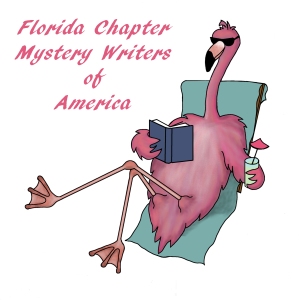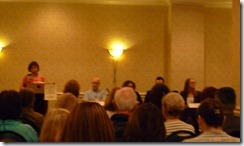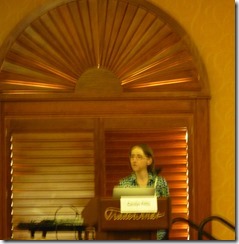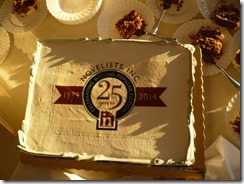It’s annoying, when I’m judging a writing contest or reading a self-published book, to find common mistakes that could be avoided with editorial help. Unfortunately, many beginning writers don’t even realize they need assistance. They’ll ask a friend or an inexperienced critique partner or a local English teacher to proofread their work, and the result is considered ready for publication. Think again. If you write fiction, you want an expert in the genre to edit your work and not the local journalist who has published nonfiction or the lit professor mired in academia.This post doesn’t apply to indie authors who know the ropes and have an expert eye screen their story.

Revise and polish your work as best you can before submission, whether to a writers contest or a publishing house or even to an editor you might hire. Here are ten common mistakes to avoid.
1. Create an Identifiable Main Character
Get us into the action right away with a sympathetic viewpoint character. Put us in her head and show us the world from her unique viewpoint. Make sure we can identify with this character throughout the story, so stay in her head as much as possible. Even when you use multiple viewpoints, we want to root for the hero.
2. Make Your Characters Likeable
Remember to address your character’s goals, motivation, and conflict. What does your character want? If she wanders aimlessly through life with no particular goals, that makes me as a reader less interested in her. Give me a reason why she behaves that way. Maybe she lacks confidence because of a past event. Maybe she’s afraid of failure. Knowing this will make the reader become more engaged with her. Give her redeemable qualities so we’ll like certain aspects of this person. If not, the reader won’t care, and that’s the death knell to your story. This also applies to the anti-hero. What makes him redeemable? Why should I, the reader, care about him? By balancing action with reaction, you’ll motivate your characters and make them more believable. For every action, you need a reaction. Don’t focus on plot to the exclusion of emotion. Make me care about your characters’ lives.
3. Avoid Bouncing Heads
Don’t switch viewpoints in mid-scene. If you must switch viewpoints, use a space break. Don’t leap into the head of every minor character. We cannot know a person’s thoughts unless we’re in their mind. You have to infer what the other person is thinking through non-verbal cues or dialogue. It becomes very disconcerting when every character we meet has an internal dialogue. Then the story loses focus. Stay in one character’s head. When you switch, indicate it with a space break.
4. Establish the Setting Up Front
As soon as possible into the story, establish the place, season, and time of day. Remember your five senses of Who, What, Why, Where, and When. Try to work these into the opening pages. Examples: Crickets chirped their nightly summer chorus, or late afternoon sunlight glinted off an icicle hanging from the roof. Also, don’t mention a street name or landmark and assume the reader knows where this place is. Be specific and give a location. Use the five senses to bring your settings alive, but remember to describe them from your viewpoint character’s perspective.
5. Watch Your Use of Bad Language
The occasional curse word may be acceptable for a hero who’s a hardass or for a heroine in the urban fantasy genre, but elsewhere it may raise a reader’s hackles. It can also turn off some readers completely, so this language should be sprinkled in judiciously, if at all. Add it only if it helps to define a character, not because you believe it makes your protagonist seem tough. Ask yourself: Is this necessary? If not, leave it out. Or deploy a substitute, like “frak” on Battlestar Galactica. Remember the old adage: Less is better, especially if you want to expand your readership.
6. Show, Don’t Tell
To keep the pace flowing, use dialogue and action and minimal exposition. If you have long passages where nothing happens except the protagonist thinks to herself or explains what happened in the past, the story comes to a dead halt. You want to imbue a sense of immediacy to your story, and that won’t happen unless you involve the reader. Long meandering passages of narration may have been acceptable centuries ago, but that doesn’t work today. Show us what’s happening; don’t tell us.
7. Avoid Flashbacks Like the Plague (and don’t use clichés, either)
The first chapter is your only chance to grab the reader so she’ll continue your story. If you segue into a flashback, the forward momentum is lost. Who cares what happened in the past? Throw in a line or two of dialogue or introspection to show us how the past is relevant to the current action, and then move on. Or make it part of the story action, such as a confrontation with a friend or a hesitation on the part of the main character to perform some act. Work backstory into your chapter with minimal intrusion. Flashbacks, too, will kill pacing, so remove those long passages that reflect past scenes and not the present. Only retain what is necessary to explain the current action.
8. Every Conversation Should Have a Purpose
When I suggest you use dialogue generously, I don’t mean that two friends should get together and chat meaninglessly on matters that don’t move the story forward. Dialogue must serve a purpose: to reveal information, define character, move the plot ahead, offer reaction and reflection on what’s just occurred. So ask yourself as you approach a conversation, what do you want to get across in this segment? If you don’t have a point to make, delete the scene.
9. Use Character Tags Sparingly
Try to replace “he said” or “she said” with actions. Avoid adverbs and show the tone of the conversation in dialogue instead. Don’t use “he thought” or “he wondered” if you are in the character’s head. Do use italics for inner thoughts.
Bad Example:
“You’d better not stick your nose where it doesn’t belong,” he said in an angry voice.
You’re telling me to mind my business? she thought. “I’ll do whatever it takes to find Angie’s killer,” she replied. “You’re the one who should watch your back.”
“Oh, yeah?” he sneered nastily. “Don’t say I didn’t warn you.”
Better Example:
“You’d better not stick your nose where it doesn’t belong.” He towered over me, as though his superior height could intimidate me into behaving.
You’re telling me to mind my own business? You’re the one who should watch your back. “I’ll do whatever it takes to find Angie’s killer.”
“Oh, yeah?” He jabbed his finger in the air. “Don’t say I didn’t warn you.”
10. Proofread Your Work
Would you enjoy reading a book riddled with spelling errors or misplaced commas? No? Then why send one to a contest where mechanics are judged? Proofread your work for typos, dropped quotation marks, missing periods, and misspellings. Same goes for your work before you indie publish it. Get beta readers to help if you can, and definitely hire both a developmental and a copy editor. You want your work to appear professional, not only out of respect for your readers but also for your future career as an author. If the goal is to increase your readership, you’ll strive to publish a polished product so readers will want more.





























